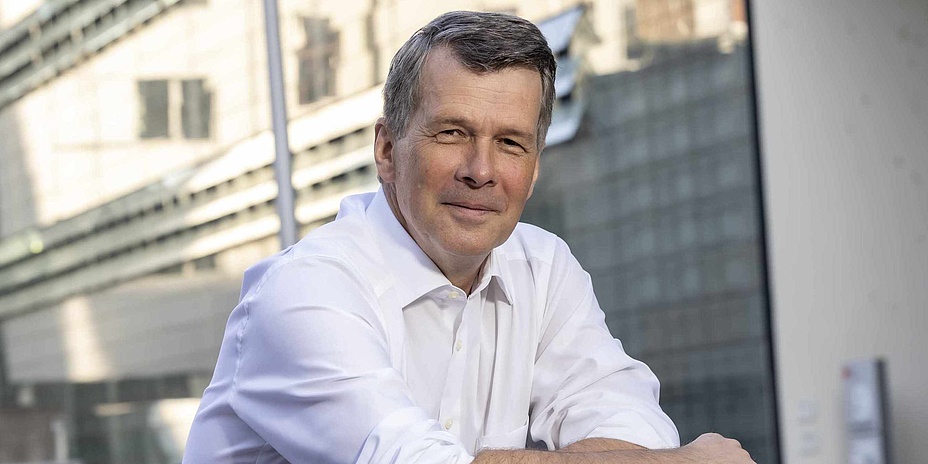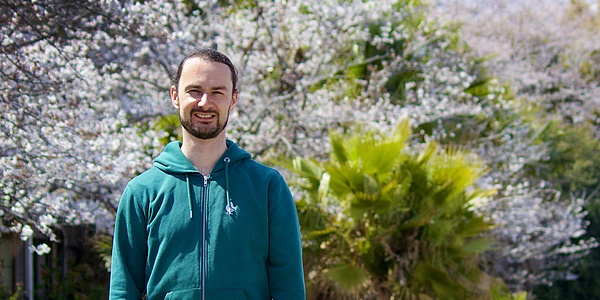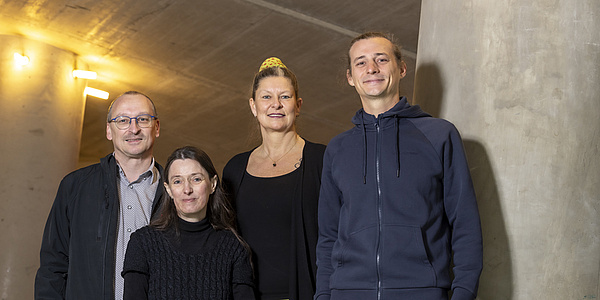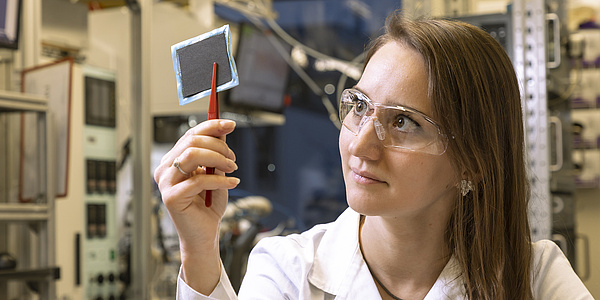‘A Constructive Cooperation that I Greatly Appreciate’

TU Graz people: You are halfway through your current term of office as Rector. In the spirit of taking stock, what has gone well so far and what has not?
Rector Horst Bischof: Our university is doing very well. We once again have a new series of ERC Grantees, and our student teams have won many prizes. We were able to put together a good package during the negotiations surrounding the performance agreement. And in the area of ‘administrative simplification’, we were able to significantly reduce both the number of guidelines and the number of pages of guidelines. In teaching, we’ve introduced the new Artificial Intelligence Engineering programme, and the enrolment figures look very promising. What hasn’t worked so well? Of course, many things could have been implemented more quickly. And in the performance agreement, we had finalised an additional package for artificial intelligence, but this unfortunately fell victim to the new government’s desire to cut costs.
You were previously Vice Rector for Research for 12 years, so you know the organisation and its structures very well. Have there been any surprising moments for you in the last two years?
Rector: When I started, I thought I knew our university very well, but I had a steep learning curve in the first two months. There is a difference between knowing that certain processes exist and having to implement them. But I already knew all the people involved, and that helped me a lot and I was able to find my rhythm quickly.
In your inaugural interview two years ago, you said that we should utilise AI as an opportunity. Do you still think so?
Rector: AI is not a panacea, and it is definitely not a substitute for human contact. But I am convinced that humans and AI can form a good duo to make efficient progress.
How does AI support staff at TU Graz?
Rector: In teaching, we issued guidelines on dealing with AI right at the beginning. In research, our scientists are already using AI very successfully to achieve results faster. For example, in Gustav Oberdorfer’s ERC project, which has just come to an end, he used AI extensively for his calculations. In addition, the Austrian high-performance computer MUSICA will soon go into operation, providing our researchers with experimental access. We started experiments with a selected working group in the area of ChatGPT for internal guidelines, but these experiments did not work well enough. But in autumn, there will be secure access to ChatGPT for all TU Graz employees as part of Academic AI. More than 20 Austrian universities are participating in this project. Academic AI offers a generic and scalable cloud platform on which AI tools can be used without security concerns.
Streamlining guidelines implies streamlining the administration. Does this also affect posts?
Rector: If we look at the figures for the last few years, we have grown slightly faster in administration than in teaching and research. With a view to the next performance agreement period, we cannot continue on this course. We are taking a close look at where we need appropriate services and scrutinising them. However, this does not mean that there will be waves of redundancies, but rather that we are taking a conscious look.
What is on the agenda for the next two years?
Rector: We want to sharpen our research profile and differentiate more clearly between the research centres and the Fields of Expertise. We want to continue to pursue the concept of ‘4th Generation Universities’ and their impact on the regional ecosystem. Campus Inffeldgasse will be developed further, as will the continuing education programme with microcredentials and the Cori Institute with its research into molecular and computational metabolism. The organisational structures are to be created at the Graz Center of Physics. Together with the University of Graz and the Medical University of Graz, we are planning to form a hub in the start-up sector that will combine all entrepreneurship activities. In the area of teaching, we want to reduce the number of courses we offer; TU Graz currently offers over 4,000 courses (with just over 8,000 students actively taking exams). We are focusing on streamlining in order to create space for new things and take the pressure off our teaching staff. And in the European university alliance Unite! we want to focus more on teaching and research.
Do we need to rethink universities in a world of crises (climate change, stress tests for democracies and geopolitical change)?
Rector: Especially with the current situation in America, we all have to ask ourselves the question: how resilient are universities and our academic systems to external influences? And here I don’t just mean state influences, buzz-word ‘foreign interference’ such as fake news and so on. Are universities really the stronghold of uninfluenced knowledge or do we also have our weaknesses here and there?
Global security and economic issues are discussed at the highest level, but what about universities? Why are the universities not at the table?
Rector: The only chance Europe has is innovation. But where will this innovation come from? Innovation can only come from universities and corresponding institutions, from students and researchers who develop these innovations. So we are actually always at the table, especially as a technical university.
Are there any other important issues you would like to mention?
Rector: I said at the beginning that it was challenging to take up my new position as Rector. But we have fantastic staff at our university, who made it easy for me to settle in. Over the past two years, I have always experienced constructive cooperation at TU Graz, despite the problems that need to be solved. The TU Graz staff are always very supportive, and that is something special that I greatly appreciate.
You can find this article and other articles to browse through in TU Graz people #94, the magazine for TU Graz employees and interested parties.




